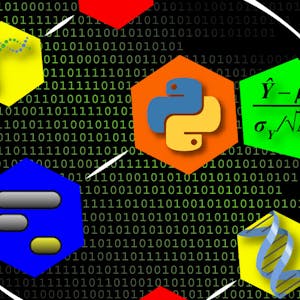The Mathematics of Democracy, Politics and Manipulation
About this Course
Welcome to The Mathematics of Politics, Democracy, and Manipulation, an inspiring course that explores the intricate landscape of democracy and decision-making. In today\'s world, understanding the mechanisms that shape our electoral systems and influence democratic outcomes is more crucial than ever. This comprehensive course delves deep into five key pillars of electoral theory and practice, empowering participants with the knowledge and tools to navigate the complexities of voting and representation. Voting Theory: Discover the theoretical foundations of voting systems, from classic methods like plurality voting to innovative approaches such as ranked-choice and approval voting. Explore the principles of fairness, efficiency, and representation that underpin different voting methods, and gain insights into their real-world applications and implications. US Electoral College: Journey through the history, mechanics, and controversies of the United States Electoral College. Unravel the mysteries of presidential elections, from the allocation of electoral votes to the winner-takes-all system, and examine the impact of the Electoral College on American politics and governance. Weighted Voting: Unlock the secrets of weighted voting systems and their role in decision-making. From corporate boards to international organizations, explore how weighted voting structures allocate power and influence, and learn how to analyze and evaluate the distribution of voting power within diverse coalitions. Apportionment: Delve into the principles and practices of apportionment, the process of allocating political representation. Examine the challenges of balancing population equality, geographic representation, and minority rights, and explore the methodologies used to divide legislative seats in democratic societies. Gerrymandering: Confront the complexities and controversies of electoral boundary manipulation. Investigate the tactics and consequences of gerrymandering, from partisan bias to minority vote dilution, and explore strategies for promoting fairness, transparency, and integrity in electoral processes. Through engaging lectures, interactive discussions, and hands-on exercises, participants will develop a deep understanding of voting theory, electoral processes, and the challenges facing modern democracies. Whether you\'re a student, a policymaker, or a concerned citizen, join us on this transformative journey as we work towards a more inclusive, equitable, and vibrant democracy for all.Created by: Johns Hopkins University

Related Online Courses
This introductory physical chemistry course examines the connections between molecular properties and the behavior of macroscopic chemical systems.Created by: University of Minnesota more
With genomics sparks a revolution in medical discoveries, it becomes imperative to be able to better understand the genome, and be able to leverage the data and information from genomic datasets.... more
This is a self-paced lab that takes place in the Google Cloud console. GKE cluster backup and restoreCreated by: Google Cloud more
Are you concerned about climate change? Would you like to learn how to address and respond to this challenge? If so, this course is for you. Act on Climate: Steps to Individual, Community, and... more
Welcome to Reigniting Employee Engagement with Professors J. Sanchez-Burks and Cheri Alexander. Engagement at work is tenuous at best. Stress and unhappiness remain elevated resulting in a myriad... more








